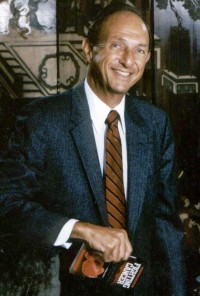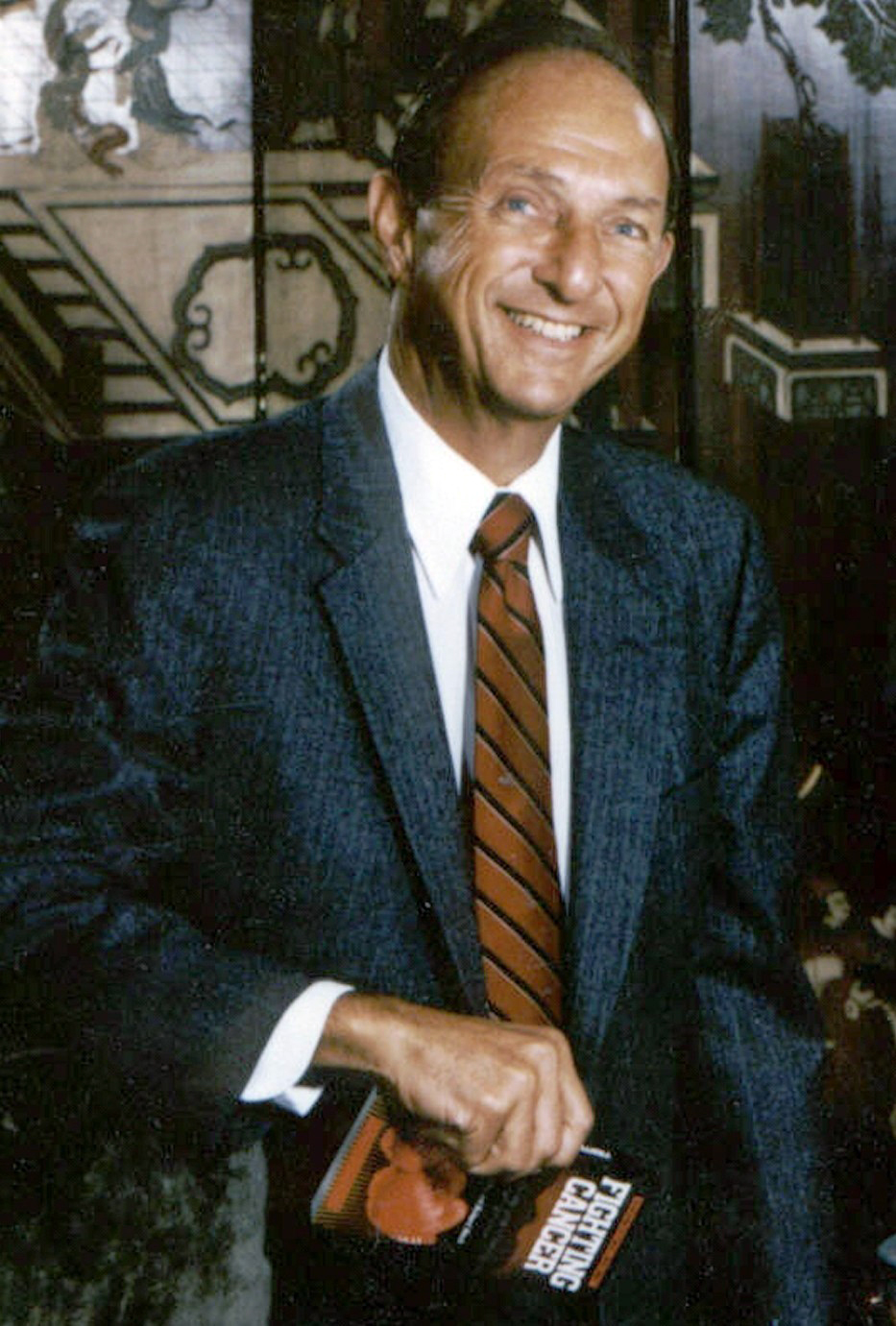It was with profound sadness that we announced the death of Richard A. Bloch from heart failure on July 21, 2004. He had been the inspiration and champion of cancer patients since winning the battle over lung cancer in 1980. His wife, Annette, who was by his side throughout his fight with cancer and with the development of the foundation, passed away July 17, 2021.

On his flight home in 1980 after his doctor declared him cancer free, Dick decided to dedicate the rest of his life to helping people with cancer. The big questions were where and how. Well, we now know the answers. As you search through our website you will find resources of inspiration and hope in the many articles he and his wife, Annette, wrote for Coping Magazine and other publications. In the links to PDQ at the National Cancer Institute you will be able to see the project that he helped develop for the Internet. You may call the Bloch Cancer Hot Line, 800-433-0464,and ask to speak to a cancer survivor of your type of cancer or request free copies of the books, Fighting Cancer, Cancer…there’s hope, or Guide for Cancer Supporters. As you read through the books you will see and feel his spirit as he encourages you to fight. Dick was a passionate advocate for mandatory second opinions. You will see the list of multidisciplinary second opinions facilities that he wanted available to all cancer patients. Dick Bloch was a successful business man but he measured his success as a human being by the cards and letters he received from cancer patients and their families. They were his treasures. He loved taking them home to share with Annette and their family. When asked how he should be introduced at any function the hosts assumed he would want to be known as the co-founder of H & R Block, but they were wrong. He would say, “Dick Bloch – cancer survivor.” He would then start his speech by saying, “Welcome to the wonderful world of hope.”
Below is the final article he wrote along with his wife, Annette. It was one of his fundamental beliefs that a positive mental attitude was an integral part of treatment. He always felt that negative comments about this issue only hurt the cancer patient.
Fighting Cancer with a Positive Mental Attitude
by Richard & Annette BlochNumerous headlines have been printed lately indicating a “positive mental attitude” has no bearing on the success of cancer treatments. In fact, some of the articles indicate that an optimistic attitude can be a negative factor.
While this article is not about me, I would like to refute these claims. Twenty-six years ago a top physician told me my lung cancer was terminal, there was nothing I could do and I had about 90 days to live. If I would have believed him and followed his advice, I would have been long gone. But I believed I could beat this, I tried my best and I won. My positive mental attitude saved my life because it caused me to seek a second opinion and search out treatments. Who says it couldn’t be the same for you?
Let’s examine the subject a little deeper. What is life? Life is only worth living if it has quality. Sitting, doing nothing constructive, waiting to die must be a horrible existence. Maybe a rare person would enjoy it, but most human beings would not. To have as pleasant day as possible today and hope for tomorrow makes life not only worth living but also happier. Who can say that happiness, pleasant thoughts and optimism could possible shorten one’s life?
Taking cancer treatments often is unpleasant and/or uncomfortable. Certainly if we do not believe we can successfully beat this disease, why put ourselves through this ordeal. We don’t take treatments and we die. To the old statement, “If we do not try, we will not succeed” we must add “If we do not believe it will help, we won’t try.”
Many doctors have an ego problem. They need to maintain their image at all costs. Therefore, they will tell patients that they are terminal. This guarantees that they will be a hero. If the patient dies, they were absolutely correct. If the patient survives, they were a hero because they brought them through it. What a horrible way to maintain a fragile ego. This is one of the reasons we always recommend a second opinion.
There are 3 bronze plaques in each of the Bloch Cancer Survivor Parks around the US stating:
“There is no cancer for which there is no treatment”
“There is no cancer from which someone has not been cured.”
“Cancer is the most curable of all chronic diseases.”In spite of these headline-seeking articles, if you love life, make a personal commitment to do everything in your power to fight the disease and do your best to keep a positive mental attitude.


